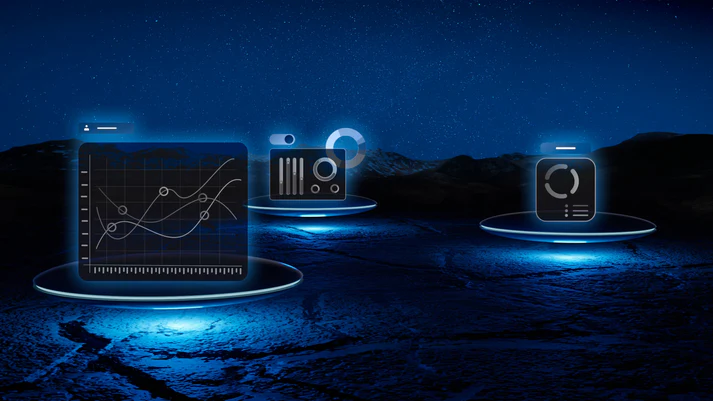With the advancement in technology and the progress in cloud infrastructure, the cloud gaming industry is growing lightning. The development of 5G networks is also a critical factor in this growth.
However, a few challenges and pitfalls still need to be resolved before people can fully experience the world of cloud gaming. Here’s a detailed overview of cloud gaming and the obstacles to expanding its scope.
What is Cloud Gaming?
Cloud gaming allows users to run video games remotely using the client’s server on the user’s device. This eliminates the requirement of heavy hardware to be able to play video games. Like you can watch movies streaming online from anywhere on your device, cloud gaming allows video games to be streamed online and played anywhere and anytime.
Future of Cloud Gaming
Mobile gaming accounted for 45 percent of the market in 2019 and has grown by 10.2 percent annually to reach more than $68 billion. Over $450 million is expected to be generated by 2023 by the cloud gaming market. And more than 2.5 billion gamers play video games using cloud gaming. These statistics highlight the growth of the gaming industry and the numerous opportunities waiting shortly around this technology.
Companies like Sony, Microsoft, NVIDIA, and Nintendo have been making strides in this area by launching and growing their video games. Even Google announced its video gaming platform, Stadia, in 2019, enabling players access to games on any screen. To summarize, more companies are adopting cloud services, and the cloud gaming industry is evolving to make the experience even better and faster.-d
Challenges: Latency, Infrastructure, Network Bandwidth, and more
Although there’s a vast scope in this industry, there are many challenges as well that companies face while adopting cloud services for gaming models. Adopting cloud-based services requires the adoption of cloud-based infrastructure. And lack of skills in implementing this infrastructure is one of the biggest challenges companies face. This is because companies need more skilled engineers and workers to set up the architecture to support cloud consulting services they aren’t willing to hire.
- Latency: Latency is one of the major issues where companies are struggling. Gaming response time should be as low as possible, failing, which affects the gaming experience putting the company’s reputation at stake. Gamers adopting cloud gaming aren’t ready for network lags. Hence the need for a fast, consistent internet connection. To tackle this challenge, companies can install gaming servers in different regions or at least continents to reduce latency time and improve both the streaming quality and responsiveness of the game. However, with massively multiplayer online role-playing games attracting millions of online players, IP network architecture must consider where to put those servers to optimize ping time.
- Server Optimization: Meeting hardware requirements and optimizing servers is one of the challenges faced by hosting companies. GPUaaS (GPU as a service) is growing as a service. Currently, 10MBps is the required connection speed (35MBps for 4K resolution). Network bandwidth is becoming an obstacle to reaching this speed. A high-speed internet connection is required whenever players play online games in real time. In the process of sending commands and obtaining video and audio streams viewed once and then discarded, users are required to connect to potentially distant servers. In such a scenario, uneven latency across the gaming ecosystem provides a suboptimal experience for players. Optimizing servers can help resolve this issue considerably.
- Reduced Visibility: Cloud computing offers the benefits of not having to manage the infrastructure and resources like servers and systems and saves time and expenses. Users will have reduced control and visibility into software systems, applications, assets, etc. This makes it challenging for organizations to verify how efficient the systems are. Most new companies are new to the cloud; thus, it is essential to gain as much information as possible before moving to the cloud. Find the right cloud service provider who can help you provide better insights into data, applications, users, and cloud services.
- Incompatibility: While moving from on-premise to the cloud, incompatibility issues may arise. If issues are not identified at the nascent stages, later businesses may have to choose a new service altogether, impacting costs. It is always suggested to list services, assets, and technologies you want to move to the cloud. Check with your cloud service provider how compatible their services are and then make the decision to move forward with cloud for your gaming.
- Insecure APIs: Using APIs in cloud infrastructure provides better control for systems and applications. However, using insecure APIs can provide an entry point for hackers, provide access to confidential data, and manipulate your environment, causing harm. Check the security protocol with your cloud provider and check if they can implement SSL encryption or provide multi-factor authentication to avoid risks and manage access.
- Downtime: A poor internet connection can play spoilsport for many organizations because a cloud requires a consistent, high-speed internet connection. If your business does not have high-speed internet, you may face repeated downtimes, errors, or lags, affecting productivity. Businesses choosing the cloud must ensure good quality internet connectivity to increase work efficiency and reduce security threats during downtime.
Conclusion
Despite the challenges, viewing the current data and the craze of players adopting cloud gaming, we can easily predict the future of cloud gaming. It’s bright. It has already disrupted the gaming world, and the future seems even more promising. The focus should be on finding solutions to the challenges cloud models face and delivering players a rich gaming experience.
If you want to move your gaming business to the cloud, Rapyder – a leading Global AWS Cloud Consulting Partner– can help you seamlessly move your business into the cloud. If you have questions regarding the movement, one of our Cloud experts can contact you.




